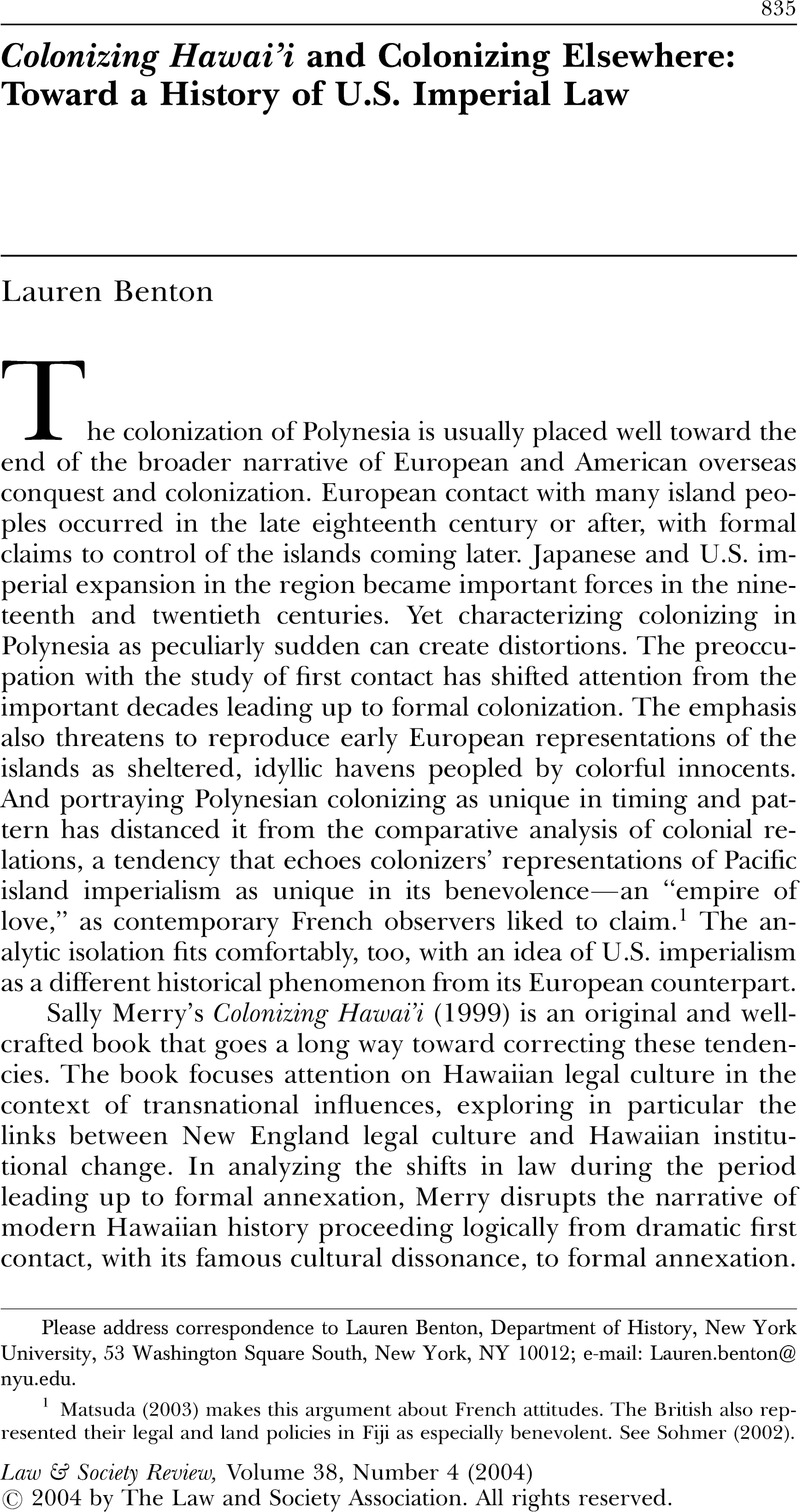Crossref Citations
This article has been cited by the following publications. This list is generated based on data provided by Crossref.
Castro, Robert F.
2007.
Plying the Liberty Trade: Law, Empire‐Building, and the Enforcement of Antislavery Scriptures in the Reconstruction of New Mexico.
PoLAR: Political and Legal Anthropology Review,
Vol. 30,
Issue. 1,
p.
109.
Ratnapalan, Laavanyan M.
2012.
Sereno Bishop, Robert Louis Stevenson and ‘Americanism’ in Hawai‘i.
The Journal of Imperial and Commonwealth History,
Vol. 40,
Issue. 3,
p.
439.
Sartori, Paolo
2014.
Constructing Colonial Legality in Russian Central Asia: On Guardianship.
Comparative Studies in Society and History,
Vol. 56,
Issue. 2,
p.
419.
Ares, Nancy
2017.
Deterritorializing/Reterritorializing.
p.
41.





